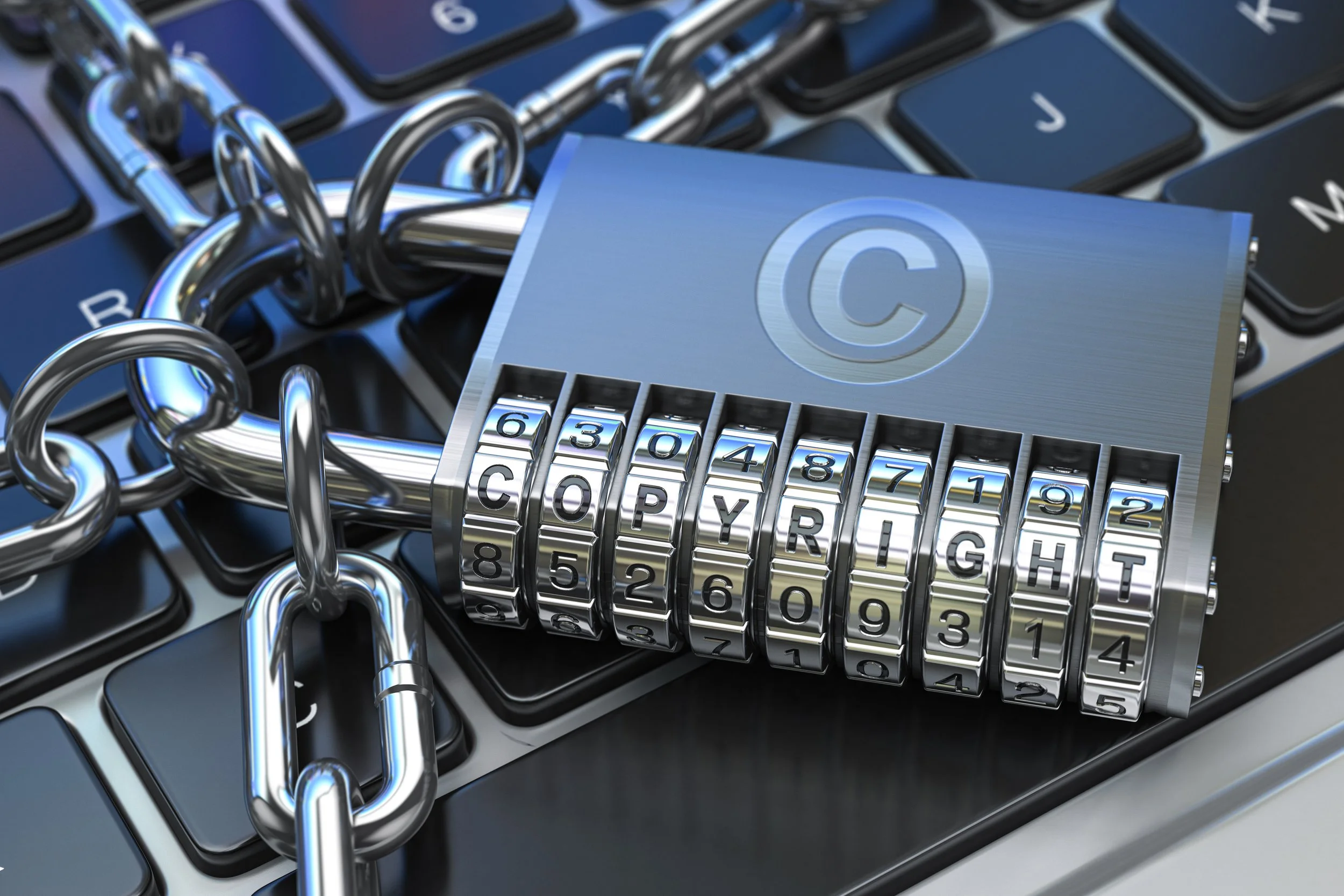Intellectual Property Rights for Content Creators and Brands: A Legal Guide
In today's digital economy, where viral content drives brand value and creator livelihoods, intellectual property (IP) protection has become non-negotiable. For influencers crafting original content and brands investing in creative collaborations, understanding UK copyright law means the difference between safeguarding your assets and facing devastating legal consequences.
This comprehensive guide examines the critical IP considerations every content professional needs to know, from automatic copyright protections to the hidden risks in AI-generated works. We'll explore how proper contract structuring can prevent six-figure disputes over content ownership, why moral rights matter more than ever in the age of digital repurposing, and what recent legal developments mean for your creative business.
Whether you're an influencer monetizing your creativity or a brand running influencer campaigns, these insights will help you navigate copyright law's complexities while maximizing the value of your intellectual property in the UK market.
Copyright Ownership in Content Creation Under UK Law
The UK's Copyright, Designs and Patents Act 1988 (CDPA) establishes that copyright protection automatically applies to original works upon their creation, without requiring formal registration. This fundamental principle covers all content formats commonly used in influencer marketing campaigns, from photographs and videos to written materials and audio recordings.
Important exceptions to automatic creator ownership exist under current legislation. Works produced under employment contracts typically vest copyright with the employer rather than the individual creator. Furthermore, the legal framework surrounding AI-generated content remains ambiguous in UK law, making explicit contractual provisions essential when artificial intelligence tools contribute to content production.
These legal nuances create significant implications for influencer-brand collaborations. Properly drafted sponsorship agreements must clearly establish whether the arrangement involves a full copyright transfer or limited usage rights, as this distinction determines how both parties may legally use and monetize the created content. Failure to address copyright ownership explicitly in contracts regularly leads to disputes over content repurposing, platform usage, and derivative works.
LegalLens specializes in drafting precise copyright provisions for influencer agreements that protect both creators and brands. Our fixed-fee contract review service ensures your intellectual property rights are properly secured. Contact our copyright specialists today to safeguard your creative assets.
Understanding Copyright Duration: Key for Influencer Content
When it comes to influencer content, understanding how long copyright lasts is crucial, especially for brands planning to repurpose material. Under UK law, specifically the Copyright, Designs and Patents Act 1988 (CDPA), the duration of copyright protection varies depending on the type of work. Here's a breakdown:
Most Creative Works (Photos, Videos, Writings, etc.):
For the majority of content influencers create – think stunning photos, engaging videos, and captivating written posts – copyright protection extends for a significant period: 70 years after the creator's death.
This means that brands must be incredibly cautious when considering using older influencer content, as the rights can remain in effect for generations.
Computer-Generated Works:
Content created entirely by a computer, without a human author, has a shorter protection period: 50 years from the date of creation.
This distinction is increasingly relevant with the rise of AI-generated content in marketing.
Works of Unknown Authorship:
If the author of a work is unknown, copyright protection lasts for 70 years from the date the work was created or first made available to the public.
This is important to keep in mind when dealing with older content where the original creator is not easily identifiable.
Why This Matters for Brands:
These extended protection periods mean that brands cannot simply assume they can use influencer content indefinitely. Even content created years ago can still be subject to copyright claims. Unauthorized use, even decades later, could result in costly infringement lawsuits and damage to brand reputation.
Key Takeaways for Brands:
Due Diligence: Always conduct thorough due diligence on the copyright status of influencer content, especially older material.
Clear Licensing: Ensure your influencer agreements clearly define the duration of content usage rights.
Archiving: Maintain detailed records of content usage and licensing agreements.
Legal Advice: When in doubt, seek legal counsel to avoid potential copyright infringement.
Don't risk copyright infringement with your influencer content. LegalLens can help you navigate copyright duration and licensing agreements, ensuring your brand stays protected.
Public Display and Reproduction Rights Under UK Copyright Law
The distinction between displaying physical artworks and reproducing digital content carries significant legal implications for brands, influencers, and cultural institutions. This section examines key considerations under the Copyright, Designs and Patents Act 1988.
Physical vs. Digital: Diverging Legal Standards
Physical artworks enjoy broader display rights. Galleries and public spaces may exhibit original works without obtaining copyright permission, provided no reproduction occurs. However, digital content operates under stricter controls. Brands routinely encounter legal challenges when repurposing influencer-generated content across websites, advertisements, or social media without proper authorization.
The Limited Scope of Fair Dealing
UK copyright law permits limited unauthorized use through "fair dealing" exceptions, though these rarely apply to commercial contexts. Permissible uses include:
Academic research and private study
News reporting with proper attribution
Genuine criticism or review
Commercial applications such as marketing campaigns, promotional catalogues, or branded social media content generally require explicit licensing. Cultural institutions must exercise particular caution when reproducing works in exhibition catalogues, as such uses may exceed fair dealing parameters.
Best Practices for Compliance
To mitigate legal risk, brands should:
Secure written licensing agreements before repurposing any third-party content
Conduct periodic audits of marketing materials to identify unlicensed assets
Consult legal professionals when determining whether catalogue reproductions qualify as fair dealing
Recent enforcement trends indicate growing scrutiny of digital content reuse, with rights holders increasingly pursuing claims against unauthorized commercial use. Proactive copyright clearance remains the most effective safeguard against costly disputes.
For further guidance on navigating reproduction rights in influencer marketing campaigns, consult our services page and get in touch.
Understanding Artist's Resale Rights (ARR) and Moral Rights Under UK Law
The Artist's Resale Right (ARR), known as droit de suite in continental Europe, provides crucial ongoing income streams for visual artists under UK copyright law. This legal protection ensures creators receive royalties when their original works are resold through professional art market channels.
Key Provisions of ARR:
Eligibility Threshold: Applies to resales exceeding €1,000 (approximately £850)
Royalty Structure: Sliding scale from 4% (lower-value sales) to 0.25% (higher-value transactions)
Maximum Cap: €12,500 per individual sale
Duration: Remains effective throughout the entire copyright term
Practical Implications for Digital Creators:
With the rise of NFTs and hybrid digital-physical artworks, ARR has gained renewed relevance. When qualifying works are resold through approved auction houses or galleries, royalties are automatically distributed via collecting societies like DACS (Design and Artists Copyright Society) rather than through direct payments.
Moral Rights Protections for Content Creators
UK copyright law recognizes four fundamental moral rights that safeguard creators' non-economic interests:
1. Paternity Right
The legal right to be identified as the author of a work, particularly when it is commercially exploited.
2. Integrity Right
Protection against derogatory treatment or distortion of a work that could damage the creator's reputation.
3. False Attribution Protection
Prevention of the misattribution of works to individuals who did not create them.
4. Privacy Right
Control over certain uses of commissioned photographs or films for private purposes.
Critical Considerations:
Moral rights are inalienable under UK law - they cannot be permanently transferred
These rights may be temporarily waived through contractual agreements
Influencers and digital creators should carefully review collaboration contracts for moral rights clauses
Actionable Advice:
Content creators should ensure all brand partnership agreements explicitly address:
Proper attribution requirements
Approval rights for modifications to created content
Usage limitations for personal imagery
Navigate the legal complexities of influencer marketing with confidence. LegalLens's experienced team provides clear, actionable advice to protect your brand and maximize your ROI. Contact Us for a Free Consulation and unlock the full potential of your influencer partnerships.
Practical Implications for Digital Content
The digital content landscape presents unique copyright challenges at the intersection of influencer marketing and intellectual property law. As the industry evolves, three critical areas demand particular attention from both creators and brands.
AI-Generated Content and Copyright Limitations
Current UK copyright law maintains a clear position regarding AI-generated material: works created solely by artificial intelligence systems without human authorship qualify for no copyright protection. This legal stance creates significant implications for content production. Marketing teams utilizing AI tools must implement robust contractual frameworks that explicitly address ownership rights, usage permissions, and disclosure requirements. The absence of automatic protection necessitates careful documentation of human creative input when AI assists in content generation.
The Repurposing Dilemma in Social Media Marketing
Brands regularly encounter legal vulnerabilities when extending the use of creator content beyond originally agreed parameters. Common pitfalls include sharing influencer-generated material on unapproved platforms, continuing use after campaign expiration dates, or making unauthorized modifications. Proper licensing agreements should comprehensively address territorial rights, duration of use, platform specifications, and modification allowances. Maintaining meticulous records of attribution and usage permissions serves as essential risk mitigation in an era of increasing copyright enforcement.
Cross-Border Collaborations and Jurisdictional Variations
International influencer campaigns introduce additional layers of complexity due to diverging legal frameworks. Notable differences exist between UK and EU approaches to moral rights protections, with continental European jurisdictions typically offering stronger perpetual safeguards. Variations in disclosure requirements for sponsored content, copyright duration, and exceptions to infringement further complicate multinational campaigns. Brands operating across jurisdictions must implement compliance strategies that account for the strictest applicable standards to ensure uniform protection.
Specialized Legal Support for Digital Creators
LegalLens provides tailored solutions to these contemporary challenges through comprehensive intellectual property services. Our team assists clients in drafting customized influencer agreements that equitably balance creator and brand interests while addressing emerging issues like AI content ownership. We facilitate resolution of copyright disputes and licensing negotiations, bringing particular expertise in social media-related conflicts.
For businesses navigating evolving AI regulations or international campaigns, our advisory services deliver clarity on compliance obligations across jurisdictions. We help clients develop future-proof strategies that account for legislative developments in digital content creation.
Recommended Resources
For deeper exploration of these topics, we invite you to consult our detailed Drafting Influencer Agreements: A Guide for Influencers or our Understanding consumer law when conducting influencer marketing campaigns in the EU and UK. These resources provide practical frameworks for addressing the legal considerations discussed here.
To discuss specific protection strategies for your digital content portfolio, schedule a consultation with our influencer contract specialists.



